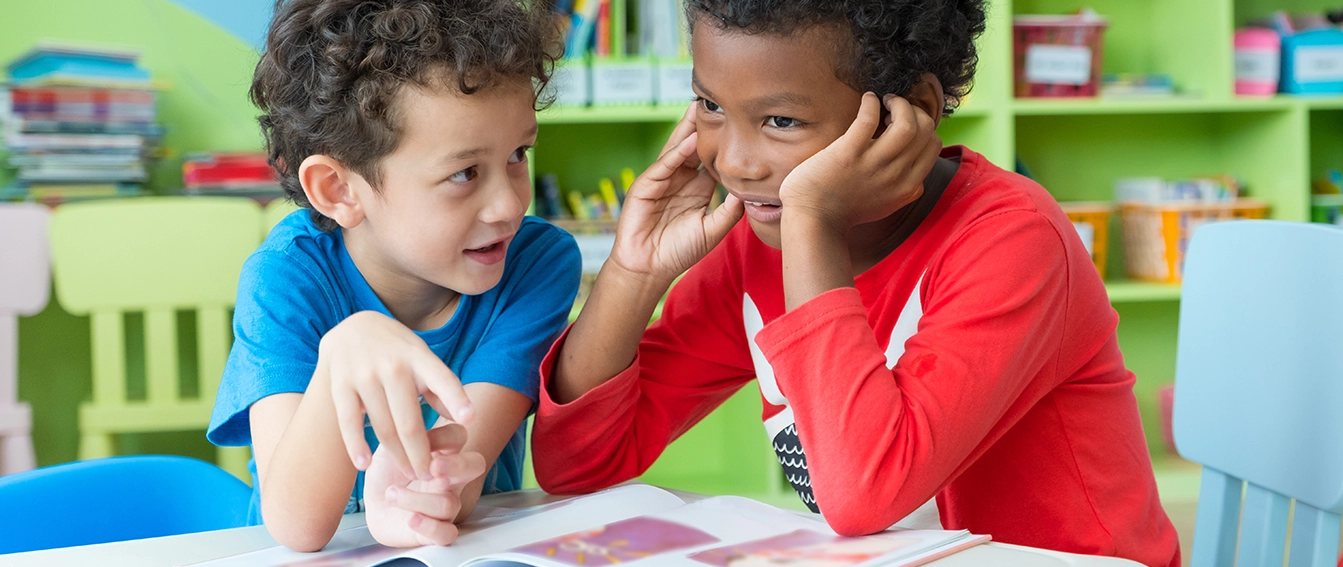“All work and no play makes Jack a dull boy.”
That simple proverb may seem wearied and overused, but at its heart, it holds some truth: People need balance in life, especially balance between their imaginations and their intellect. But work and play don’t need to be mutually exclusive. Play and learning can be combined. In fact, many experts, from educators to psychologists, believe play is learning. They’ve discovered that it develops a host of cognitive and emotional foundations essential for later life. Even Plato knew this more than 2,300 years ago:
“Our children from their earliest years must take part in all the more lawful forms of play, for if they are not surrounded with such an atmosphere they can never grow up to be well conducted and virtuous citizens.”
Information Time
Current trends push kids to learn more and learn early, with approaches to teaching that are usually reserved for higher grade levels. The hopeful result is that the more one learns early on, the better. Some experts believe it doesn’t quite have the effect intended. They believe the push for absorbing a great deal of knowledge at a young age can have negative effects on development. They figure that students who just sit and consume information for the sake of gaining more information lack the opportunity for real-world engagement and critical thinking. Teacher-directed instruction and mass testing have pushed kids to be information consumers who learn facts, figures, and historical narratives with the basic goals of getting a good grade or passing a test.
Playtime
Play is often viewed as that—just play, or recreational activities with no goal other than to have fun. Some people, however, insist it is much more. Those who encourage play, and play as learning, say kids need to be free to discover and imagine. Play involves exploration, experimentation, and cognitive engagement. All perform a role in academic success and success in career paths, and they’re important for leadership and innovative thinking. Education experts have developed a comprehensive list of how different forms of play lead to serious intellectual, physical, and emotional benefits. With a focus on activities such as games, puzzles, drawing, and writing, play helps students learn no matter where they are. Playing board games in particular encourages critical and strategic thinking and opens the door for teamwork experiences.
Play helps children engage the world around them, and engaging it is the first step to understanding it. Play-to-learn advocates promote play as an essential component of learning that goes hand-in-hand with traditional academic instruction. There’s even a formal gathering for like-minded people. The Cincinnati Museum Center hosts a Learning Through Play Conference for educators and parents. Separate events are curated for each group.

